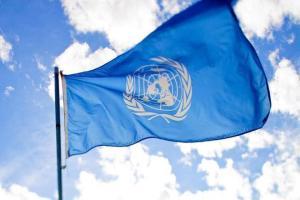The Huanan market was closed after the virus outbreak in China in December last year

This picture has been used for representation purpose
The wet markets, such as the Huanan Seafood Market in China's virus-hit Wuhan city, are an important "risk factor" for disease spread, the UN biodiversity chief has said as she called for scaling up stricter controls on the sale and consumption of wild species globally. Wild animals sold in the Huanan Seafood Market are believed to be the source of the novel coronavirus pandemic that has claimed more than 82,000 lives worldwide so far. The Huanan market was closed after the virus outbreak in China in December last year.
ADVERTISEMENT
"Live animal markets (also known as 'wet markets' in parts of Asia, such as the Huanan Seafood Market in Wuhan China, in which live fish, meat and wild animals are sold) are an important risk factor for disease spread as is the global wildlife trade," Acting Executive Secretary of the Convention on Biological Diversity (CBD) Elizabeth Maruma Mrema said on the occasion of World Health Day on Tuesday.
She said measures taken by countries to reduce the number of live animals in food markets have the potential to significantly reduce the risk of future disease outbreaks and "stricter controls on the sale and consumption of wild species must be scaled up globally." Mrema noted that these markets also sustain the livelihoods of millions of people and many others rely on wild meat as a critical source of food security and nutrition, including in low-income rural areas.
Further, a ban of the trade, farming and consumption of wild species or a "clamp-down" of wet markets, does not, altogether eliminate the risk of future zoonotic spillover, and may even, under some conditions, generate new opportunities for diseases to emerge, she said. She pointed out that a blanket ban may inadvertently increase the risk of illegal trade of species used as food and medicine, particularly among some communities that may attach strong cultural and societal referents to some wild species used and traded as foods, medicines, or for other purposes.
Approximately two-thirds of known human infectious diseases are zoonotic, meaning diseases that normally exist in animals but that can infect humans and so can be transmitted from animals to humans. Mrema stressed that there is a rapidly emerging body of scientific evidence to suggest that COVID-19, like several other strains of coronavirus, including MERS and SARS, is likely to have a zoonotic origin, which means it originated in an animal host before spilling over to human populations.
Once spillover occurs, some coronaviruses, such as COVID-19, are then transmitted from person to person. "Our globalized, increasingly interconnected world makes them more likely to spread faster and farther, increasing their pandemic potential," she said.
The official underscored that lessons learned from COVID-19 and other epidemics also point to the need for concerted action supported by a long-term vision; "one that enables us to fundamentally transform our collective understanding of, and relationship with, the natural world, to prevent, insofar as possible, future pandemic outbreaks."
UN Secretary General Antonio Guterres' spokesman Stéphane Dujarric was asked during the daily press briefing about the increasing call by experts, including by US government's top infectious disease specialist Anthony Fauci, for wet markets in China and similar wildlife markets to be closed. "I think these are medical questions that should be addressed by the medical community. It is clear that we should take whatever public health measures we can take in order to help stop the spread of the virus, whether it's this one or others," Dujarric said.
"It is very important that we do whatever we can to stop the spread of the virus and future zoonotic spillovers," he added. Fauci, a key member of the White House coronavirus task force, said on 'Fox & Friends' last week that China and other nations should be pressured to shut down the "wet markets".
"(They) should shut down those things right away. It just boggles my mind that when we have so many diseases that emanate out of that unusual human-animal interface that we don't just shut it down," Fauci said.
Signed by 150 government leaders at the 1992 Rio Earth Summit, the Convention on Biological Diversity is dedicated to promoting sustainable development.
Catch up on all the latest Crime, National, International and Hatke news here. Also download the new mid-day Android and iOS apps to get latest updates
This story has been sourced from a third party syndicated feed, agencies. Mid-day accepts no responsibility or liability for its dependability, trustworthiness, reliability and data of the text. Mid-day management/mid-day.com reserves the sole right to alter, delete or remove (without notice) the content in its absolute discretion for any reason whatsoever
 Subscribe today by clicking the link and stay updated with the latest news!" Click here!
Subscribe today by clicking the link and stay updated with the latest news!" Click here!







